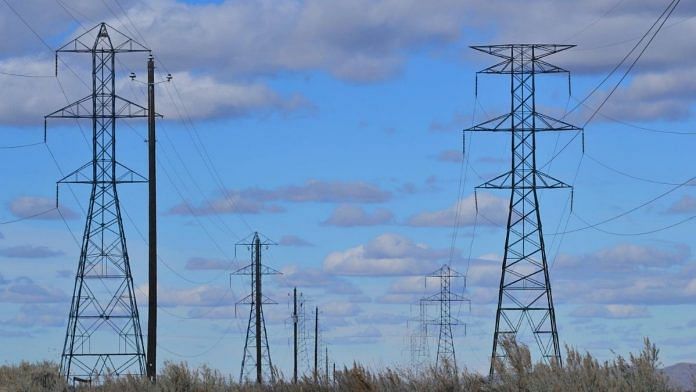New Delhi: After a gap of five years, the Narendra Modi government is auctioning 4G airwaves. The first day of auction across various frequencies began Monday.
The government received winning bids for more than Rs 77,000 crore at the end of day one of the auction, Telecom Minister Ravi Shankar Prasad said.
As the bidding proceeds further, ThePrint explains why the auction this time around is substantially different than the previous ones and how this is unlikely to be a major revenue earner for the government.
Why is spectrum important?
Spectrum refers to radio waves that enable mobile communication. Purchase of this spectrum will enable companies to provide commercial mobile services.
In December last year, the cabinet gave approval for auction of spectrum in 700 MHz, 800 MHz, 900 MHz, 1800 MHz, 2100 MHz, 2300 MHz and 2500 MHz frequency bands.
A combined frequency of 2251.25 MHz is being offered with a total valuation of Rs 3.92 lakh crore at the reserve price.
So far, 37 per cent of the quantity of spectrum and 19 per cent of the value of the spectrum put up for auction has been bid for. While 60 per cent of the spectrum offered across five airwaves has been bid for, there were no takers for two of the remaining airwaves.
Also read: How 5G can end social equality
How can companies gain access to spectrum?
Beginning April 2010, India started auctioning spectrum. Since then, many rounds of auctions have taken place for sale of 3G and 4G spectrum.
The last such spectrum auction took place in 2016 when the government garnered more than Rs 60,000 crore in revenues by sale of 4G spectrum.
The current round of auction is also of 4G spectrum. The sale of this will allow companies to renew their spectrum in cases where it is about to expire. It will also help the existing companies to expand their coverage.
Why is India auctioning 4G spectrum when 5G is already available?
Typically, India has lagged behind other countries in the adoption of advanced technology. This was a trend visible even during the adoption of the previous generation of communication networks like 4G and 3G.
Countries started using 5G — a technology that will facilitate more devices to be connected to a network along with a substantially higher upload and download speed — beginning 2019. At present, over 40 countries have deployed 5G technology and many more are in the process of doing so.
However, the Indian government is expected to initiate the process of auctioning 5G or fifth generation spectrum that will enable even faster modes of communication compared to 4G only later this year. The current auction of 4G will help the government in determining the base price of the 5G auction.
Also read: Covid, floods, locusts — India’s nascent drone industry helps govt fight many challenges
Why auction is unlikely to be a big revenue earner
Analysts expect there will be only a limited demand for spectrum from companies ahead of the transition to 5G. This is despite the fact that the terms of the auction are more favourable this time around than the previous auction that took place in 2016.
The reserve price is lower and the bidders have been given the flexibility of paying the entire bid amount in one go, or paying 25-50 per cent upfront and the remaining up to 16 equated installments.
Companies typically buy spectrum to either augment their network capacity or when new firms want to start offering their services in new areas.
However, unlike the 2016 auction, there are fewer players in the race this time around. In 2016, there were more companies who were part of the bidding process ensuring greater competition. Tata Teleservices Ltd, Reliance Jio Infocomm Ltd, Bharti Airtel Ltd, Idea Cellular Ltd, Vodafone India Ltd, Aircel Ltd and Reliance Communication were the seven firms that took part in the bidding process.
However, since then, there has been large scale consolidation in the industry, bringing the number of firms down to three.
Because of this, only three firms are participating in the bidding process this time — Reliance Jio Infocomm Ltd, Bharti Airtel Ltd and Vodafone Idea Ltd.
Even among these three firms, only Reliance Jio and Bharti Airtel have relatively strong balance sheets with Vodafone Idea having negative net worth.
The earnest money deposited by these companies ahead of the auction — Rs 10,000 crore by Reliance Jio, Rs 3,000 crore by Bharti Airtel and Rs 475 crore by Vodafone Idea — also indicate how much these companies will bid.
A higher amount of earnest money deposited gives a firm more room to bid. With the prevailing cash constraints, companies may also be conserving cash for the 5G spectrum auctions that are expected later this year.
Also read: Govt eases norms on mapping, acquisition & production of geospatial data



